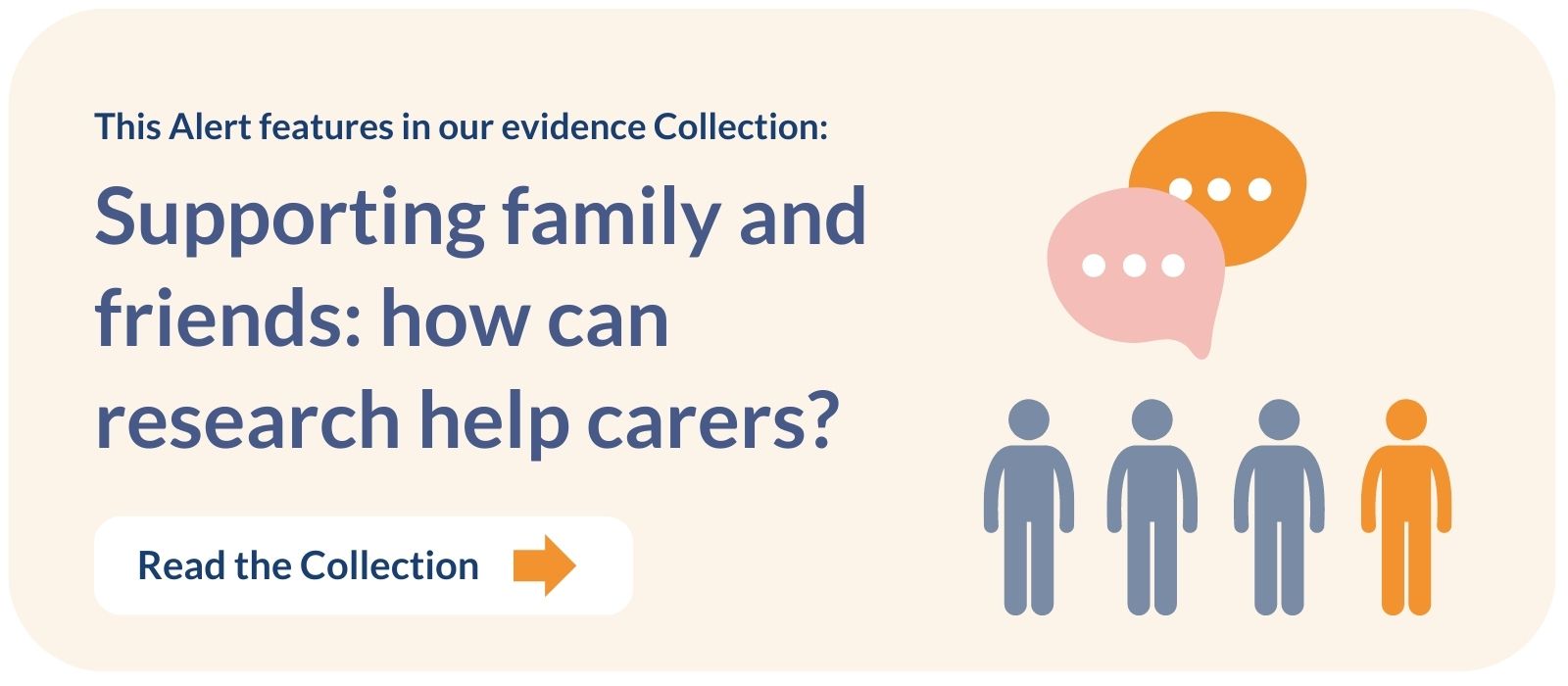This is a plain English summary of an original research article. The views expressed are those of the author(s) and reviewer(s) at the time of publication.
Young adult carers are more likely to be unemployed, to have lower earnings from paid work, and to have worse physical and mental health than other young people. A major study found that these negative effects on young carers aged 16-25 years, also cost the UK economy one billion pounds every year.
The study is the first to look at this age group and the first to analyse the associated economic costs. It calculated the costs to the economy as a combination of a reduced amount of tax paid by the young carer, more benefits claimed, and greater use made of health services.
These carers often look after older relatives. The study found that the negative impacts of caring are likely to compound existing inequalities in society. Young adult carers were more likely to be female, have lower educational qualifications and live in social housing.
The results highlight the need for improved formal care services, and more support for young and young adult carers.
What’s the issue?
Along with many other countries, England has a gap in provision of social care: the population is ageing and the need for care increasing, but provision of formal care services has declined. Unpaid care provision has grown to fill the gap, often with young people caring for older relatives.
Providing such care puts a heavy burden on young people. Policy makers have tried to address this, most notably through the 2014 Care Act. The Act means that local authorities have a duty to assess the needs of carers and offer them support but it applies only to those aged 18 years and over. Most young adult carers have not had their needs assessed.
Efforts to reduce the burden on carers have mostly focused on those aged under 16. There is less information about the impact of providing unpaid care on those aged 16-25, and almost none on the consequences for wider society.
What’s new?
This research was based on data collected from three waves of the UK Household Longitudinal Study (2013 to 2017). It compared employment, earnings and health impacts for 561 young adult carers and 6342 non-carers of the same age, at two time points 12 months apart. It also looked at broader economic impacts on society.
The results showed that, compared to non-carers, carers:
- were twice as likely to have left employment and become unemployed in the 12 month period
- had worse physical and mental health
- were about £160 worse-off per month
- paid £741 less in tax per year
- claimed £44 per month more in welfare benefits
- cost the health service £289 more per year.
Overall, the costs to the state were £1.048 billion each year. That is a combination of £497 million in foregone tax revenue, £357 million in welfare benefits and £194 million for health service costs.
Why is this important?
Young adult carers are taking responsibility for the welfare of older relatives, often for years and at a critical time in their own education, mental health and transition into adulthood.
Many of the negative consequences the study identifies – on employment prospects and on physical and mental health – have the potential to persist for years afterwards. This is especially problematic because many of those young adult carers care belong to disadvantaged groups.
Taken together, the study reinforces the moral and economic case for addressing shortcomings in the formal provision of care. It also demonstrates the need for policy makers to address the needs of young adult carers and to provide prevention, early intervention, and ongoing support for young adult carers.
What’s next?
The results add to much existing evidence that England, and other countries, need to restructure and invest in services that provide formal social care. This is a complicated task but the researchers say it must be addressed. Providing better social care has substantial public support.
The heavy burden on young adult carers means that many limit their current future prospects. This study highlights the need for more rigorous checks on the young adults’ own welfare and situation. The rights to such assessments are laid out in the 2014 Care Act, but most young adult carers have not had these assessments. It can be difficult even to identify and contact younger carers.
The researchers say an important follow-up to this study is to check on the longer-term health and prospects of young adult carers. If the negative impacts on carers’ lives last for years afterwards – as experts fear it will – that would bolster the case for finding ways to intervene and help at an earlier stage.
You may be interested to read
The full paper: Brimblecombe N, and others. The high cost of unpaid care by young people: health and economic impacts of providing unpaid care. BMC Public Health. 2020;20:1115
The wider study: The UK household longitudinal study
Review article: Sempik J, and others. Young Carers Research, Practice and Policy: An Overview and Critical Perspective on Possible Future Directions. Adolescent Res. 2020;5:77–89
The Children's Society support website for carers: Supporting young carers
The Carers Trust website, a major charity for, with, and about carers.
Funding: This research was funded by the NIHR School for Social Care Research.
Conflicts of Interest: The study authors declare no conflicts of interest.
Disclaimer: NIHR Alerts are not a substitute for professional medical advice. They provide information about research which is funded or supported by the NIHR. Please note that views expressed in NIHR Alerts are those of the author(s) and reviewer(s) and not necessarily those of the NHS, the NIHR or the Department of Health and Social Care.
